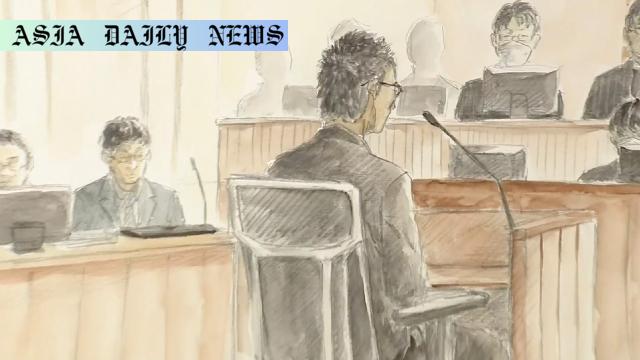Attempted Murder: Defendant Kimura Ryuji, charged with heinous crimes, says explosive attack was intended for publicity and regrets injuries.
Key Point 1: Kimura Ryuji charged with five offenses, including attempted murder and Explosives Control Act violations.
Key Point 2: Claimed attack aimed to draw attention to his legal case against Japan’s election system, not to harm others.
Key Point 3: Injuries occurred despite Kimura assuming the homemade explosive wouldn’t detonate immediately.
Key Point 4: Expressed regret after two individuals were hurt by the incident in Wakayama City.

The Incident in Wakayama City
In April 2023, Japanese ex-Prime Minister Kishida Fumio narrowly escaped harm as a homemade explosive device was thrown near him during a visit to a port in Wakayama City. The defendant, 25-year-old Kimura Ryuji, faced substantial charges, including attempted murder, after the explosion injured two individuals. Fortunately, Kishida was unharmed, thanks to prompt evacuation.
Kimura’s Motivation and Lack of Publicity
Kimura’s trial has shed light on a puzzling motive. Legal actions against the Japanese election system preceded this incident, and Kimura hoped to garner significant public attention for his grievances. When social media failed to amplify his voice, he resorted to a shocking method—an attack designed to capture media coverage and public interest rather than to harm people, he claimed.
Details of the Trial
Kimura faces not only attempted murder charges but also violations under the Explosives Control Act. During his trial in the Wakayama District Court, he declared himself not guilty of intending to kill, arguing a lack of premeditated intent. Kimura explained that he assumed the device he had built would give onlookers ample time to flee before detonating.
Consequences of the Attack
The explosive did detonate quickly, leaving two innocent bystanders injured. This miscalculation undermined Kimura’s intentions and has raised serious concerns about his methods. Despite remorse for the injuries caused, Kimura’s defense openly acknowledged his accountability for the actions that led to the harm of others.
Legal Ramifications and Public Attention
The trial is poised to set significant precedents in cases of domestic terrorism. Kimura’s actions have sparked a national dialogue on the relationship between legal frustration and violent demonstrations, as well as the misuse of explosive devices. The debate surrounding his motivations further polarizes public opinion, highlighting complex issues in Japan’s political and legal dynamics.
Reflection on Individual Responsibility
This case raises ethical and legal questions about when dissatisfaction with governance justifies radical measures. While Kimura’s actions drew attention as intended, it does not alleviate the moral gravity of harming innocent people. It serves as a cautionary tale about the lengths some individuals will go to be heard in a saturated media landscape.
Conclusion
The Kimura trial underscores the need for improved transparency in governance and meaningful platforms to address civic grievances. It illustrates the dangers of escalating frustration into illegal and harmful activities. As the trial unfolds, it will provide important lessons for policymakers and citizens alike regarding responsive legal systems and safe avenues of public expression.
Commentary
Is Publicity Worth the Cost?
The case of Kimura Ryuji brings up an important question: when does the pursuit of being heard cross an ethical line? Kimura’s intention—using an explosive device to gain attention—might seem extreme to most, but it also raises the larger issue of how society handles voices drowned out by mainstream systems. Some might empathize with his frustration with the election system, yet the method chosen cannot be justified.
The Impact on Political Figures’ Safety
Experiences like Kishida’s highlight the increasing vulnerability of political figures worldwide. While Japan has traditionally been seen as a safe country for public officials, this incident echoes broader global trends of heightened risks in political campaigns. Security protocols need to adapt to unconventional threats as individuals like Kimura seek attention through violent means.
A Lesson on Non-Violent Expression
For society, this case underscores the importance of safe platforms for grievance redressal. Kimura’s frustrations could have been better channeled through peaceful protests or legal petitions. Society and governments must ensure avenues for such expressions remain robust, accessible, and transparent to prevent radical escalation.
Conclusion
The Kimura case is a wake-up call on multiple fronts. It speaks to the dangers of untreated grievances, the limits of freedom of expression, and the critical need for secure political systems. While Kimura’s actions are indefensible, addressing the root causes of his frustration might ultimately benefit the broader democratic fabric. Let this trial not just result in a verdict but also in meaningful discussions on reform and public safety.


